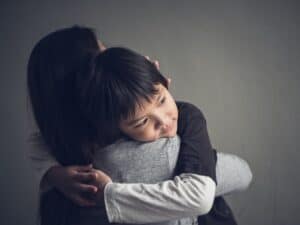If the mother dies, who has custody of the child?
The death of a parent is traumatic for everyone, but the question of who will take care of their children when they are no longer there can be especially difficult. Fortunately, courts generally favor the biological parents in this situation. In many cases, however, this is not necessarily the case.
(Looking for “will attorney near me“? Contact us Today!)

When a parent dies, their wishes regarding the custody of their child are typically taken into account by the courts. But in situations where the parents had conflicting wills, or if one parent died first and the other later, there is often some disagreement over what should happen to the children when both parents die.
If the Mother Dies
The court will usually grant custody of the children to the surviving biological parent, unless there is a reason that would suggest that this is not in the best interest of the child. This is a consideration that may include the parents’ involvement, their emotional and physical needs, each parent’s stability, the child’s preference, community and family support in making the decision, and other relevant factors.
If the Mother Dies
The surviving biological parent, usually the father, will need to establish paternity in order to claim custody of their child. He can do this by taking a paternity test, signing a birth certificate or acknowledging paternity in court.
After establishing paternity, the father should contact a child custody lawyer in their area to begin a legal process. They will be able to advise you on how to proceed in the most appropriate way.
If the Custodial Father Has a Will That Names Another Person for Guardianship
The biological father may also have a will that states who he would like to have as guardian of their child after their death. Regardless of the terms of the will, the court must follow this request, but they do not have to adhere to it.
If the Father Is Unfit
A non-custodial parent can petition the court for custody if they believe that it is in their best interests to do so. This is a common request from grandparents, aunts, uncles, or other family members who have a significant role in the child’s life.
These family members often seek custody if they feel that the deceased parent was unfit or if they want to ensure that the child will have a relationship with them in the future. If the father has a history of domestic violence, alcohol abuse, or drug addiction, these are all examples of reasons why the court might choose to deny him custody.
If the Father Is Unfit
Often, the most important factor in whether or not a non-custodial parent can get custody of their child after the death of the custodial parent is whether or not the father has been involved in the child’s life in any way. This includes spending time with the child, expressing an interest in the child’s life and providing any other necessary financial resources to care for the child.

